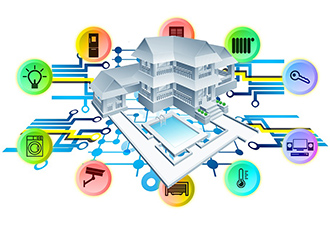Demand for training soars as smart meter deadline looms

Demand for smart meter training is heating up as firms race to meet the new smart metering equipment technical specification 2 (SMETS 2), that came into force in October, according to utilities specialist Develop Training Limited (DTL). The government has called on energy companies to replace all old-style gas and electricity meters with smart meters.
But the roll out to 36 million households and small firms has been hit by delays, largely due to a shortage of skilled installers, and now DTL has reported that the new SMETS2 standard has taken the demand for training to a new level.
Gavin Davies, Energy Training Manager at DTL, said: “We recognised early on that smart meters would require a massive training programme across the industry, and there is no question that the introduction of SMETS2 will increase demand significantly. We have put in place a number of specialist, NSAP and EUSR approved courses to help utility companies and contractors by training people to be technically competent and giving them the customer care skills they need when working in people’s homes.”
By June, smart meters had been installed in 12.5 million households. These are supposed to transmit data to the supplier via a national network without the need for meter readings and to be transferrable between energy suppliers. However, many of the old type SMETS1 (Smart Meter Equipment Technical Specification) meters are not fully compatible with the network, meaning consumers may find their meter returns to being ‘dumb’ if they switch suppliers.
This led to the introduction of the SMETS2 standard. The deadline by which new meters must meet the standard is now October 5th, having been pushed back three months, but many companies are still installing the old-type meters. The energy regulator Ofgem is allowing 12 suppliers to continue installing them beyond the deadline to ensure a smooth transfer.
DTL has pointed out that the introduction of new technology will continue to exacerbate the skills shortage in the utilities and construction industry. As artificial intelligence, robots and virtual reality become more commonplace, the industry will need to adapt, adding to the need for training. Meanwhile, there is a skills shortage due to the unfashionable image of working in these industries and an ageing workforce reaching retirement.
Davies added: “Smart meters are part of a growing nationwide digital grid, including smart home products and electric cars, which will be used to manage energy demand. It has become increasingly clear that in the coming years technology will become ever more important across all the utilities, not just in electricity. Contrary to the popular idea of people working in trenches, utilities personnel are highly skilled professionals requiring specialist training, and this will increasingly be the case in future. DTL is already providing training for a number of big names in the utilities and construction industries and, as soon as SMETS2 goes live, we only see this increasing.”
Similar articles
More from Develop Training Ltd (DTL)
- Ninety-four percent pass rate on new wiring standard 21st May 2019
- Fast-track training to meet new wiring regulations 23rd April 2019
- Let’s get more women into engineering 9th April 2019
- Apprenticeships are the answer to falling uni numbers 29th January 2019












Write a comment
No comments